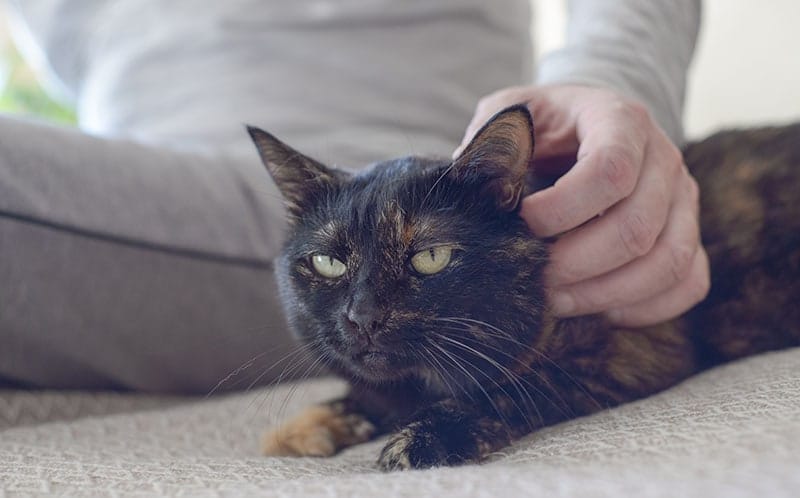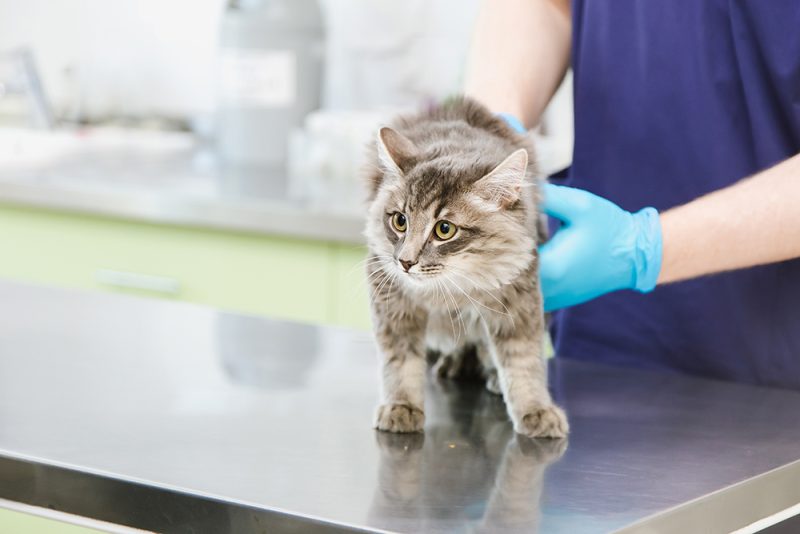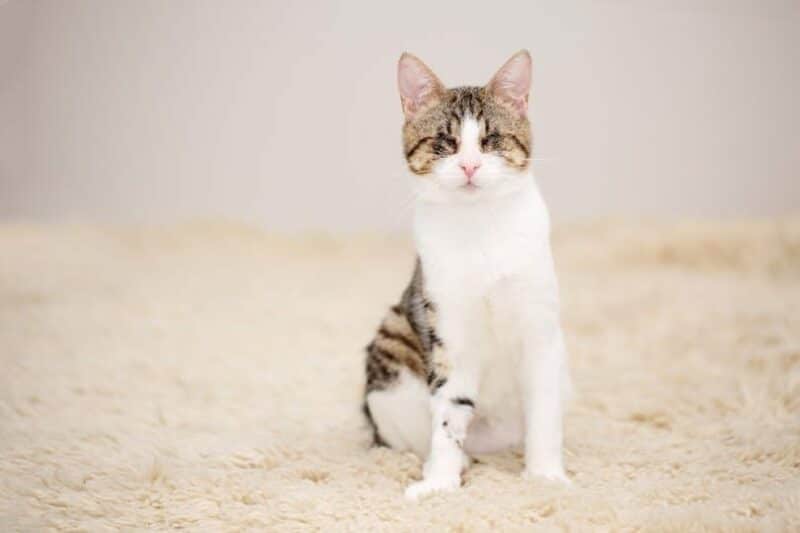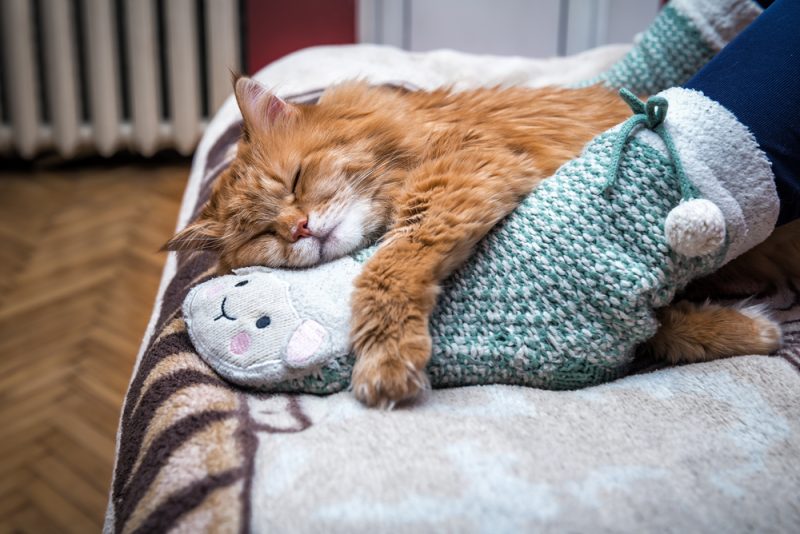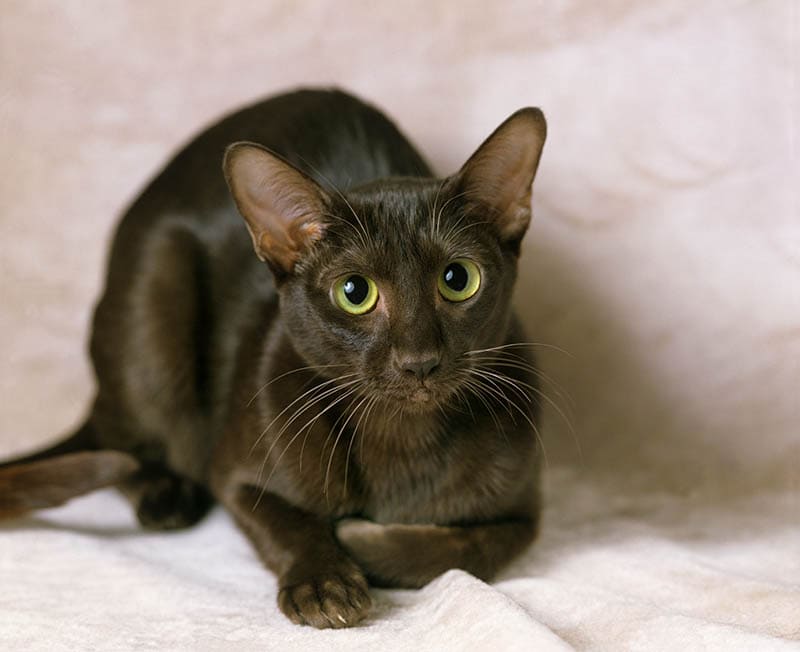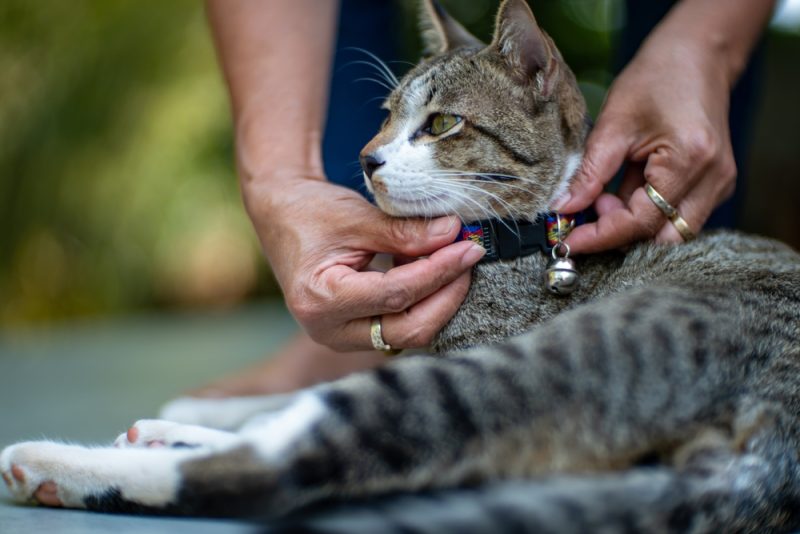In this article
When it comes to dogs, we all know how good their senses are, especially for smelling and hearing. But in this regard, cats are similar to their canine counterparts and even have a few epic secrets of their own.
A cat’s ears hold one of the biggest secrets there is. Despite their thin, leathery appearance, their structure is quite complex. It is widely believed that a feline’s ear contains 32 muscles that allow a 180-degree individual rotation. All these muscles give cats the ability to move their ears around, whether to tilt them forward, flatten them against their heads, or listen to you creeping up behind them.

Why Do Cats Have So Many Ear Muscles?
A cat uses their ears to direct sound into their ear canal and toward the eardrum, as well as for communication purposes. The number of muscles that they have in their unassuming ears is what makes all these things possible.
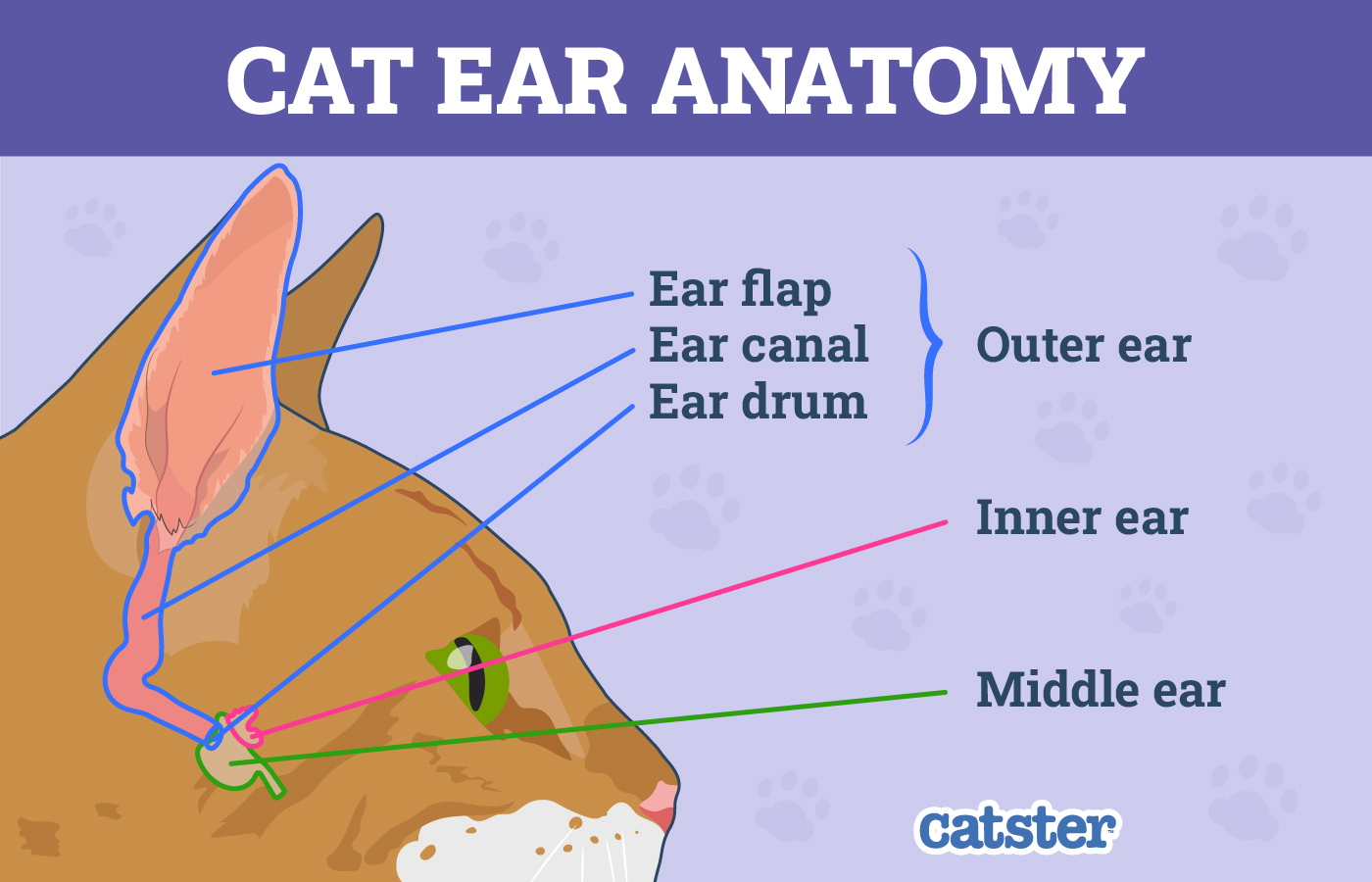
Balance Aids
Cats have an uncanny ability to always land on their feet, and part of the reason for this is the structure of their inner ear. It’s the same way that our ears work but on a much more sophisticated scale.
As cats move, the fluid in the semicircular canals shifts, too. When it does, the fluid interacts with tiny hairs inside the ear canal. This movement tells their brain what they’re doing and whether they need to correct their balance. These signals include information from how they’re sitting to if they’ve just toppled off the couch.
Communication
Many cats meow when they want attention. But believe it or not, cats aren’t as vocal with other felines as they are with us. They’ll hiss if a strange cat gets too close or chirp to say hello, but they mostly rely on more subtle methods of communication.
Sometimes, they’ll fall back on their preference for body language with us, a habit that can lead to a few scratched arms and nipped fingers if we read them wrong.
If you know what to look for, reading your cat’s body language can be relatively easy. Their ears, in particular, are among the most expressive parts of your feline’s body.
When your cat is at ease, their ears will be relaxed too. They might twitch occasionally, but otherwise, they’ll just be still. On the other end of the spectrum, an irritated or frightened cat will flatten their ears against their skull.
Paying attention to your cat’s ears is a good indication of whether your kitty is amenable to a fuss or would rather be left alone. The next time that you play a game with your cat, notice the position of their ears. They should be upright and tilted forward as they focus on you and their favorite stuffed mouse.
Sound Direction
An ear’s most basic purpose is to funnel sound waves to the eardrum. While we humans have to turn our heads to better hear in certain directions, the muscles in a cat’s ears do all the work for them. With an individual 180-degree rotation, your cat can focus on noises all around them.

More Interesting Facts About Your Cat’s Ears
The number of muscles in your cat’s ears is impressive, but there are many other quirks about your kitten’s ears.
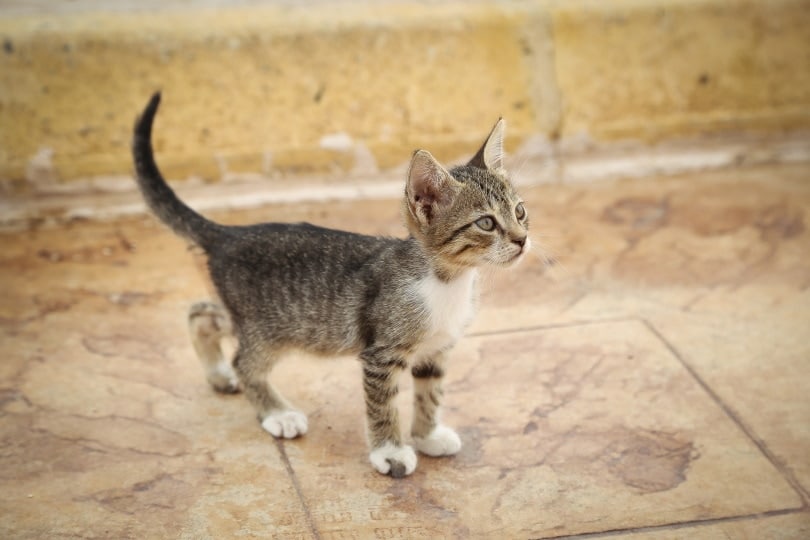
Born Deaf
Many people know that kittens are born blind, but few know that they’re born deaf too. Their ear canals stay closed until they’re between 10 and 14 days old. Even then, their hearing isn’t fully developed until they’re at least 6 weeks old.
More Ear Muscles Than Dogs
Cats have more ear muscles than humans do; we have only nine muscles (three extrinsic and six intrinsic muscles) in our ears, after all. Surprisingly, they also outshine dogs. Cats are thought to have an epic 32 ear muscles, and dogs have only 18 of them.
Super Hearing
Dogs are revered for their hearing ability, and cats are often overlooked. Cats can hear better than most canines can. Along with hearing many of the low-pitched sounds that dogs can, cats can also hear high pitches.
Not only can they distinguish between individual sounds, but they can also use their hearing to determine the size of their prey.
Temperature Changes
As odd as it sounds, the temperature of your cat’s right ear can show how stressed they are. If you notice that the temperature of their ear changes, especially during high-stress situations, it’s a result of your cat’s hormones reacting to their stress levels. It’s only the right ear that does this, though; the left ear doesn’t have this ability.

Final Thoughts
Cats might be forgotten about when it comes to epic pet facts, especially compared to dogs, but their senses deserve an awed whistle, too. Not only can they hear better than dogs can, but they are thought to have 32 muscles in their ears—approximately 14 more than dogs—which gives them a much broader range of movement.
Featured Image Credit: Ekaterina34, Shutterstock
